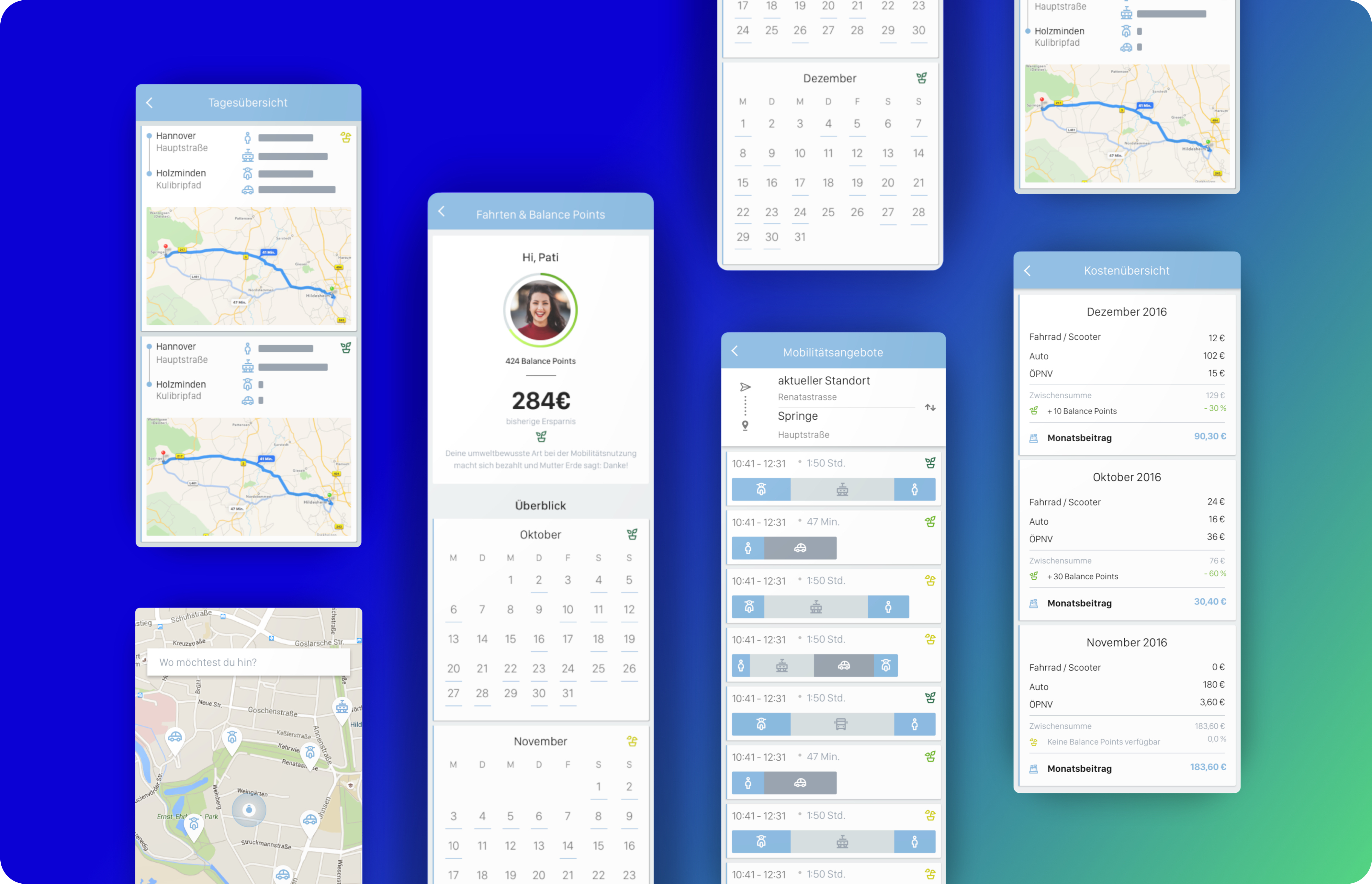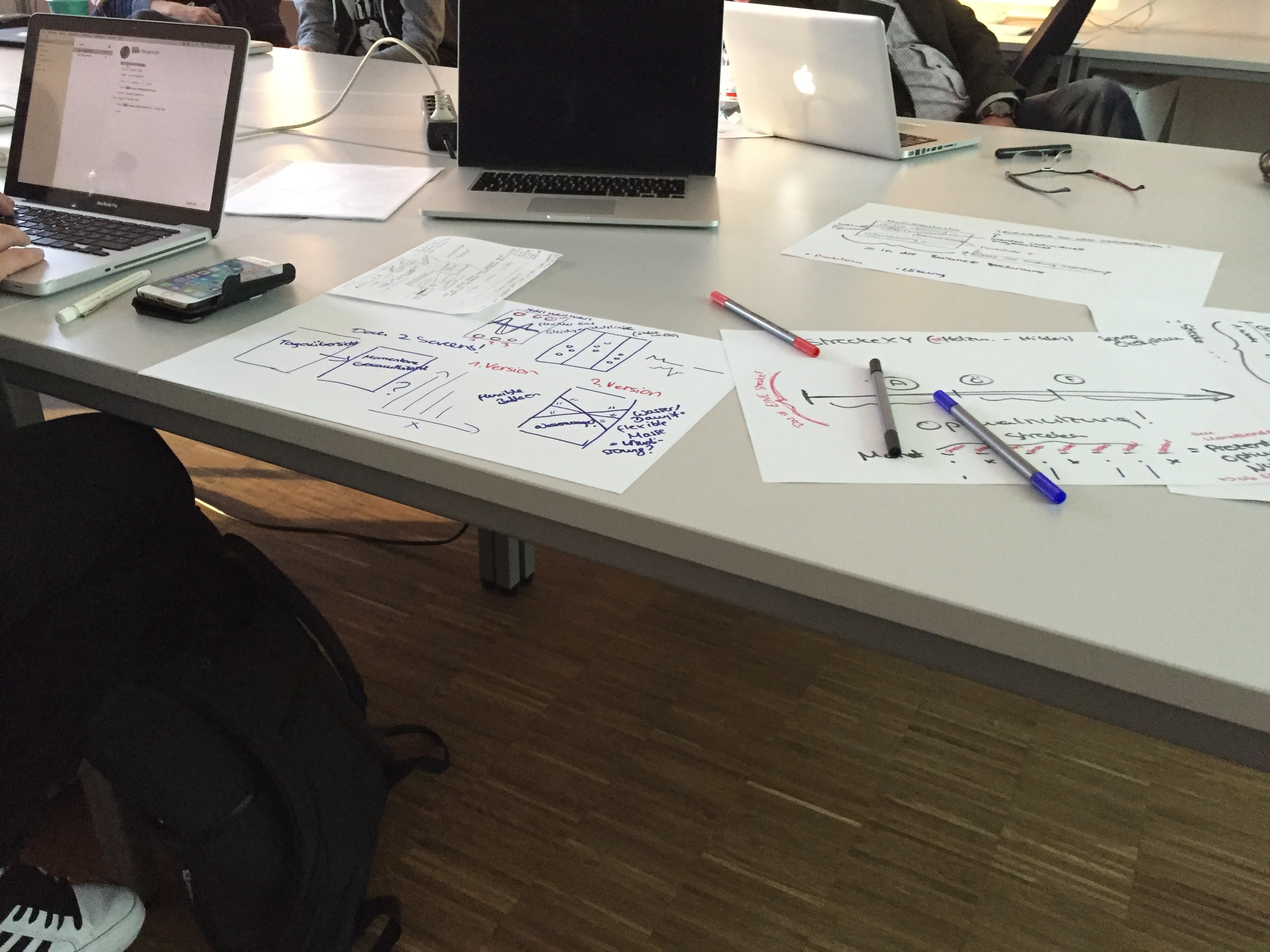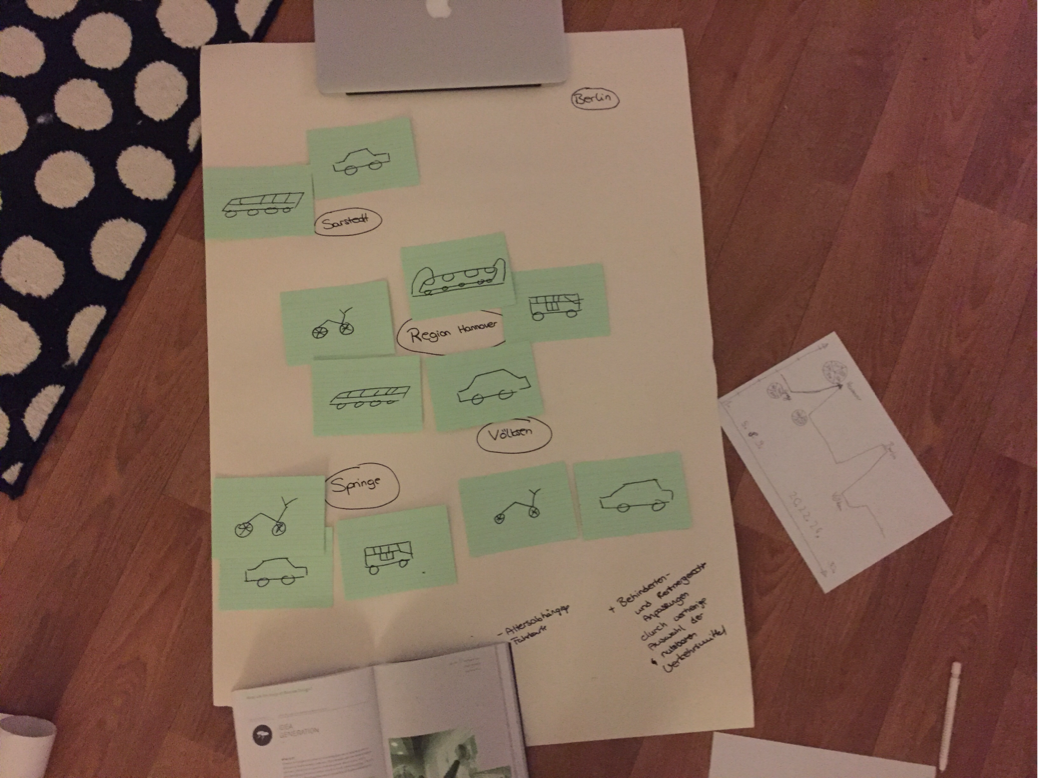transforming urban mobility
transforming urban mobility
everyway
EVERYWAY
2016 / MASTER STUDIES / HAWK x VW IDEATION HUB / UX & SERVICE DESIGN
How will we move tomorrow?
How will we move tomorrow?
a
#What is everyway?
#What is everyway?
Urban mobility as a sustainable service
Mobility as a sustainable service
Everyway is a sustainable service, that redefines the urban mobility ecosystem by combining and connecting digitally all local available means of transportation. Whether bike, scooter, vehicle, bus or train - with the help of a digital ticket which can be accessed via all smart devices, it is possible to easily and conveniently use and pay any available mobility offer by using the everyway app. It is simple - it allows the user to access the optimal means of transit without having to conclude separate rental agreements or subscriptions.
The service is flexible and provider-independent, it adapts to every users life situation and only has to be paid when the user is actively driving. There will be never again costs for unused subscriptions. True to the motto: Pay as you go.
In addition, it follows a sustainable background by awarding balance points for environmentally conscious behaviour. If all available mobility offers are used in a balanced way so that the environment is protected, the usage costs becomes cheaper in percentage terms.
Everyway is a sustainable service, that redefines the urban mobility ecosystem by combining and connecting digitally all local available means of transportation. Whether bike, scooter, vehicle, bus or train - with the help of a digital ticket which can be accessed via all smart devices, it is possible to easily and conveniently use and pay any available mobility offer by using the everyway app. It is simple - it allows the user to access the optimal means of transit without having to conclude separate rental agreements or subscriptions.
The service is flexible and provider-independent, it adapts to every users life situation and only has to be paid when the user is actively driving. There will be never again costs for unused subscriptions. True to the motto: Pay as you go.
In addition, it follows a sustainable background by awarding balance points for environmentally conscious behaviour. If all available mobility offers are used in a balanced way so that the environment is protected, the usage costs becomes cheaper in percentage terms.

Key benefits of everyway
Key benefits of everyway

One ticket for everything
One ticket for everything
All available means of transportation such as vehicles, bikes, scooters, buses, subways or trains are available with just one digital ticket. The everyway app automatically tracks the mobility services used in the background - the user no longer needs to think about anything.
All available means of transportation such as vehicles, bikes, scooters, buses, subways or trains are available with just one digital ticket. The everyway app automatically tracks the mobility services used in the background - the user no longer needs to think about anything.

Intelligent billing
Intelligent billing
Costs are billed on a monthly basis and are calculated intelligently. If, for example, someone rides the bus more often during a certain period, the ticket is automatically upgraded to a weekly or monthly pass and the costs are reduced again as soon as the use is less frequent.

Balance Point System
Balance Point System
The savings from the balance point system of the mobility ecosystem encourage people to travel more environmentally friendly and thus contributes also more environmental awareness. This leads to cleaner cities and clean air in the long term.
#Research_Methods: Desk & literature research, surveys, interviews, observation
Core mobility problems in urban areas
Core mobility problems in urban areas
The research conducted has shown that today's core mobility problems are particularly concentrated in urban areas and are caused by too high a car density. In addition to the massive, harmful emissions, drivers are annoyed every day by "traffic jams from nowhere", loss of time and lack of parking space. Basically, many urban areas are designed for cars and not for people. This causes that there are more "metal deserts" than green spaces in cities. Nevertheless, many people can't part with their vehicle because it means personal freedom for them. Freedom means, that you can go wherever and whenever you like without thinking about it. But due to the existing problems of urban mobility, the aspect of freedom that the vehicle once represented is relativized.
Furthermore public transportation providers have systems that differ per city and county. The prices and the range of tickets differ greatly. The massive numbers of people who travel without paying - often not even intentionally - result in a negative trend in the crime statistics of many cities.
The situation is similar with carsharing providers. There are many different service models with varying prices and sometimes more, sometimes less complicated rental models. Ridesharing services are mainly available in large cities.
The research conducted has shown that today's core mobility problems are particularly concentrated in urban areas and are caused by too high car density. In addition to the massive, harmful emissions, drivers are annoyed every day by "traffic jams from nowhere", loss of time and lack of parking space. Basically, many urban areas are designed for cars and not for people. This causes that there are more "metal deserts" than green spaces in cities. Nevertheless, many people can't part with their vehicle because it means personal freedom for them. Freedom means, that you can go wherever and whenever you like without thinking about it. But due to the existing problems of urban mobility, the aspect of freedom that the vehicle once represented is relativized.
Furthermore public transportation providers have systems that differ per city and county. The prices and the range of tickets differ greatly. The massive numbers of people who travel without paying - often not even intentionally - result in a negative trend in the crime statistics of many cities.
The situation is similar with carsharing providers. There are many different service models with varying prices and sometimes more, sometimes less complicated rental models. Ridesharing services are mainly available in large cities.


Poor urban space use
Livable concepts as well as green spaces are being displaced by more and more roads and parking lots to accommodate individual vehicle traffic
Livable concepts as well as green spaces are being displaced by more and more roads and parking lots to accommodate individual vehicle traffic


Increased emission values
Due to the enormous emission of exhaust gases by the mass of vehicles, the air quality in cities suffers, people fall ill more often
Due to the enormous emission of exhaust gases by the mass of vehicles, the air quality in cities suffers, people fall ill more often


Complicated local transit
There are many different tickets depending on the range and duration, but the offer is often not very transparent and digitally deficient
There are many different tickets depending on the range and duration, but the offer is often not very transparent and digitally deficient
Key learnings and insights about movement profiles and mobility use in citites
Key learnings and insights about movement profiles and mobility use in citites
#01
#01
People are annoyed by the high number of different systems, tickets and prices.
"I wish there were a ticket, with which I can use all available means of transportation in the city without having to worry about use radius, payment or contracts every time I travel."
"I don't understand why there is no flexible ticket. I have to pay so much for a week of public transport, I might as well take a monthly ticket, even though I don't need it."
People are annoyed by the high number of different systems, tickets and prices.
"I wish there were a ticket, with which I can use all available means of transportation in the city without having to worry about use radius, payment or contracts every time I travel."
"I don't understand why there is no flexible ticket. I have to pay so much for a week of public transport, I might as well take a monthly ticket, even though I don't need it."
#02
There is an high imbalance in the use of available means of transportation for different reasons.
"I would like to have an real alternative to the car. My daily commute is not long, but too far to walk. The bus is unfortunately very unreliable and in my part of town rental bikes are not offered. On the other hand, the daily search for a parking space takes longer than the entire commute."
There is an high imbalance in the use of available means of transportation for different reasons.
"I would like to have an real alternative to the car. My daily commute is not long, but too far to walk. The bus is unfortunately very unreliable and in my part of town rental bikes are not offered. On the other hand, the daily search for a parking space takes longer than the entire commute."
#03
On average, people in urban areas move about 15 km per day from their homes, mainly to go to work, shopping or for recreational activities.
"In everyday life, my routes are actually not particularly long. I do most of it on foot or on my bike. I only take the bus or train in bad weather. I think it's a shame that individual tickets are so expensive. If I travel 4 or 5 times a month, I pay as much as for a monthly ticket."
On average, people in urban areas move about 15 km per day from their homes
"In everyday life, my routes are actually not particularly long. I do most of it on foot or on my bike. I only take the bus or train in bad weather. I think it's a shame that individual tickets are so expensive. If I travel 4 or 5 times a month, I pay as much as for a monthly ticket."
#Ideation_Methods: Mindmapping, user journey, flowcharts, solution sketches
#Ideation_Methods: Mindmapping, customer journey, solution sketches
Mobility problems of today could be greatly reduced if a service is built from existing mobility offerings around the real needs of people.
Mobility problems of today could be greatly reduced if a service is built from existing mobility offerings around the real needs of people.
e
e



mobility + smart city + digital culture
mobility + smart city + digital culture
#Conception & Prototypiong_Methods: Customer Journey, storytelling, user flows, low & high fidelity prototype
#Conception & Prototyping_Methods: Storytelling, flowcharts, low & high fidelity prototype
Service video
Service video
Logo
Logo

App prototype
App prototype

The people who are crazy enough to think they can change the world are the ones who do.
STEVE JOBS
The people who are crazy enough to think they can change the world are the ones who do.
STEVE JOBS
